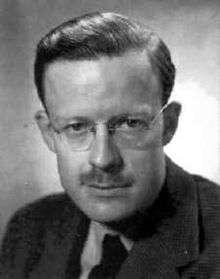Ontario general election, 1945
| | |||||||||||||||||||||||||||||||||||||||||||||||||||||||||||||||||||||||||||||||||
| |||||||||||||||||||||||||||||||||||||||||||||||||||||||||||||||||||||||||||||||||
| |||||||||||||||||||||||||||||||||||||||||||||||||||||||||||||||||||||||||||||||||
| |||||||||||||||||||||||||||||||||||||||||||||||||||||||||||||||||||||||||||||||||
The Ontario general election of 1945 was held on June 4, 1945, to elect the 90 members of the 22nd Legislative Assembly of Ontario (Members of Provincial Parliament, or "MPPs") of the Province of Ontario, Canada.
The Ontario Progressive Conservative Party, led by George Drew, won a second consecutive term in office, winning a solid majority of seats in the legislature—66, up from 38 in the previous election.
The Ontario Liberal Party, led by former premier Mitchell Hepburn, was returned to the role of official opposition with 11 seats, plus 3 Liberal-Labour seats that it won in coalition with the Labor-Progressive Party (which was, in fact, the Communist Party). The three new Liberal-Labour MPPs were James Newman of Rainy River, Joseph Meinzinger of Waterloo North and Alexander Parent of Essex North.
The social democratic Co-operative Commonwealth Federation (CCF), led by Ted Jolliffe, was reduced from 34 seats to only 8.
Two seats were won by the Labor-Progressive Party on its own with the re-election of A.A. MacLeod and J.B. Salsberg. The LPP contested a total of 31 ridings under the leadership of Leslie Morris who was defeated in the Toronto riding of Bracondale. As well, the Labor-Progressive Party ran several joint candidates with the Liberals under the Liberal-Labour banner.
The Drew government called the election in an attempt to get a majority government. By exploiting increasing Cold War tensions, the PC Party was able to defeat Jolliffe's CCF by stoking fears about communism. Jolliffe replied by giving a radio speech (written by Lister Sinclair) that accused Drew of running a political gestapo in Ontario, alleging that a secret department of the Ontario Provincial Police was acting as a political police spying on the opposition and the media. This accusation led to a backlash, and loss of support for the CCF, including the loss of Jolliffe's own seat of York South. This probably helped Drew win his majority, although in the 1970s, archival evidence was discovered proving the charge.
Results
| Party | Leader | 1943 | Elected | % change | Popular vote | ||
|---|---|---|---|---|---|---|---|
| % | change | ||||||
| Progressive Conservative | George Drew | 38 | 66 | +73.7% | 44.3% | +8.6% | |
| Liberal | Mitchell Hepburn | 15 | 11 | -26.7% | 29.8% | -1.4% | |
| Liberal-Labour | - | 3 | |||||
| Co-operative Commonwealth | Ted Jolliffe | 34 | 8 | -76.5% | 22.4% | -9.3% | |
| Labor–Progressive | Leslie Morris | 2 | 2 | - | 2.4% | ||
| Liberal Independent | 1 | - | - | ||||
| Total Seats | 90 | 90 | - | 100% | |||
See also
- Politics of Ontario
- List of Ontario political parties
- Premier of Ontario
- Leader of the Opposition (Ontario)


